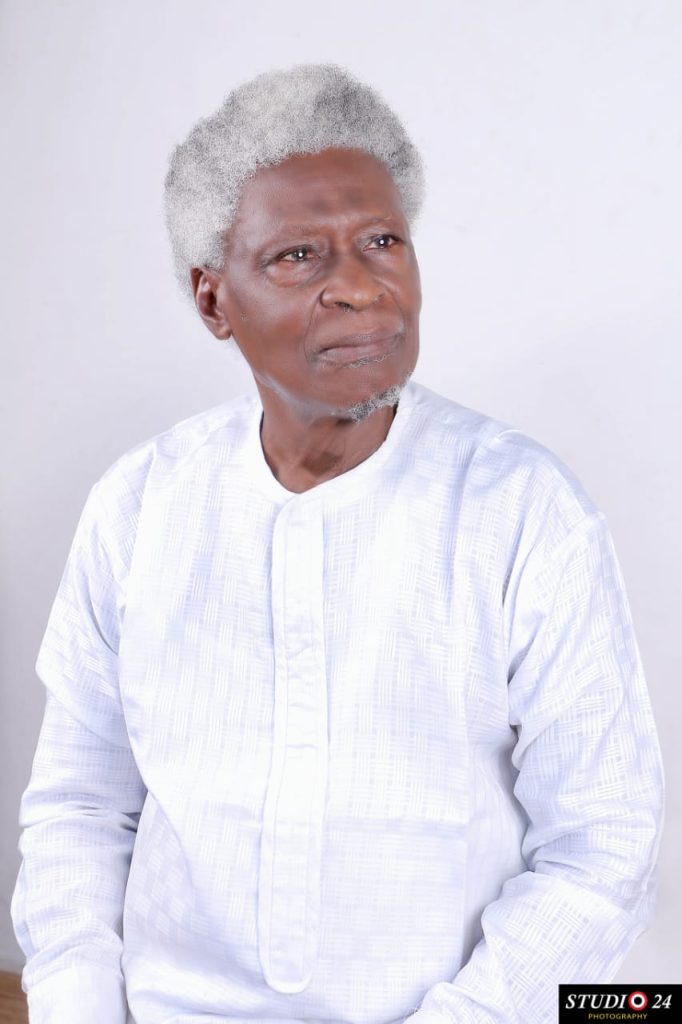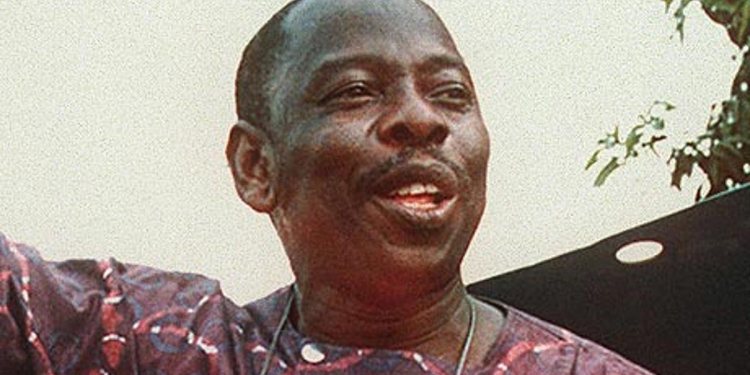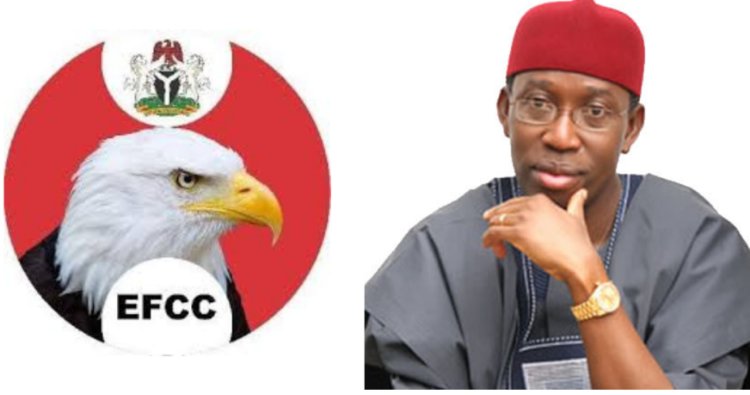By Chris O. O. Biose
On the occasion of the 2024 Ogoni Martyrs Remembrance Day on November 10, 2024, President Bola Ahmed Tinubu did what he knows best – words of solidarity with the Ogoni people without any plan of action to ameliorate their suffering. Presidential pardon and honour on the convicted Ogoni 9 and even on the murdered Ogoni 4 would be quite appropriate. However, flowery words and elaborate ceremonies would not heal the historic wounds inflicted on the Ogoni nation while permitting the injustices in Ogoniland to continue unabated. The Tinubu administration would do well to avoid such mockery.
Meanwhile, the social turmoil that led to the human tragedy in the area continues. Ken Saro Wiwa led a campaign of civil disobedience to draw attention to the plight of his people. In response, the Abacha military junta and the oil company sponsored some Ogonis to support them. This led to deep division in the Ogoni society while the foreign oil company and the military junta enjoyed the benefits of crude oil resources in Ogoni land.
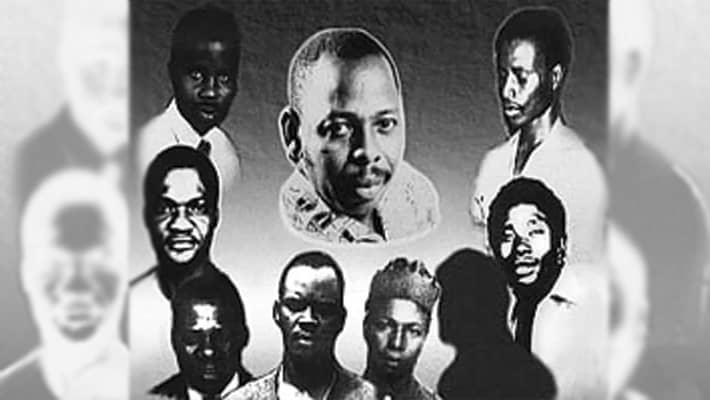
Till date, there is no remorse and no restitution from the oil company or from the Federal Government of Nigeria. All the wicked dramatis personae that oppressed and tormented the Ogoni people are venerated by the Federal Government.
The criminally unconscionable international oil company, the Commander of the occupation force under which thousands of Ogoni people disappeared and the head of the kangaroo military tribunal that ordered the judicial murder of Ken Saro Wiwa, Justice Ibrahim N. Auta, are treated as heroes by the Federal Government of Nigeria.
Since the late 1960s, foreign exchange earnings from sale of crude oil and natural gas from the Niger Delta became the chief source of maintaining the huge capital and recurrent expenditure for running federal, state and local government in Nigeria. The exploitation of these natural resources however occasioned massive degradation of the Niger Delta environment. Unfortunately, the Nigerian government is only interested in selling and using the proceeds from these natural resources, and showed no interest whatsoever in understanding or ameliorating the ill effects of oil exploration on the Niger Delta environment.
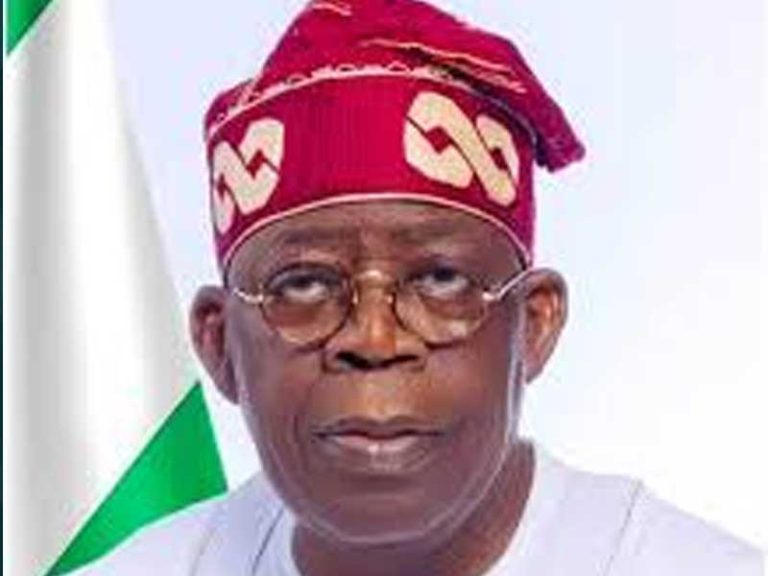
The relationship between the oil producing areas of the Niger Delta and the Nigerian state has always been that of violence visited upon the people to seize the crude oil and natural gas deposited by nature in their land. One year after the oil-producing community of Umuechem in Etche Local Government Area (LGA) of Rivers State was flattened by the Nigeria Police in October 1989, Ken Saro-Wiwa, author, playwright and environmentalist, founded the Movement for the Survival of Ogoni People (MOSOP) in 1990 based on peaceful agitation for justice. The organisation was a grass-root mass-based, non-violent movement which reputedly conducted several marches without any incident. It was composed of several associations and self-help groups. In spite of constant harassment by Government and multinationals as well as inadequate funding, the organization had offices in five Ogoni Clans which were manned by volunteer workers.
Ogoni Bill of Rights, 1990
Under the inspiration of Ken Saro-Wiwa in co-operation with Ogoni intellectuals, MOSOP articulated Ogoni demands in a document known as Ogoni Bill of Rights. The document gave a graphic account of the economic, social and environmental travails of Ogoni people since 1958 when Shell started operation on Ogoni land and articulated a set of demands which may be summarized as follows.
• Struggle for political control of Ogoni affairs by Ogoni people;
• Control and use of a fair proportion of Ogoni resources and royalties accruing from oil exploitation for Ogoni development;
• Right to protect Ogoni environment and ecology from further degradation;
• Restructuring of Nigeria based on equality of all its constituent nationalities;
• Political autonomy of Ogoni people within the context of a federal Nigeria;
• Linking up voluntarily with other equally autonomous political groups for the purpose of development.
At a public ceremony, MOSOP presented The Ogoni Bill of Rights to Shell, the military junta and several organisations in Nigeria. Unfortunately, there was no response to Ogoni demands.
On United Nations Day for Unrepresented Peoples (World’s Indigenous Peoples Day) January 3, 1993, 300,000 Ogonis, young and old, embarked on a peaceful and civilized march, the largest peaceful march ever under the leadership of Ken Saro Wiwa. The principal purpose of the march was to demand justice from the Nigerian state. They also asked oil companies operating in the area to begin environmental remediation and pay compensation for past damage.
Thus, the Ogoni, under the leadership of Ken Saro Wiwa, may rightly be said to be the first ethnic nationality to raise awareness and organise protests against indigenous oppressors in Nigeria.
Saro Wiwa described the gathering as “the moment when my people crossed the threshold of fear.” Addressing the mammoth crowd, he said among other things: “In recovering our money that has been stolen from us, I do not want any blood spilt, not of an Ogoni nor of any strangers amongst us. We are going to demand our rights non-violently and we shall win.”
Issues raised by Ogoni included “global issues of the right of man to a clean environment; sustainable development; the political and economic rights of the various peoples who make up the multi-ethnic states of Africa, states which were created primarily to serve the European colonial interests and which are, therefore, largely irrelevant to the needs of their constituent peoples, democracy and military dictatorship in African nations; the role of multi-national corporations among indigenous African peoples.” (Ken Saro Wiwa, Acceptance Speech on the occasion of the presentation of the 1994 Right Livelihood Award)
“Judicial Murder” of Ken Saro Wiwa/‘Ogoni 9’
The “judicial murder” of Ken Saro Wiwa was the high point of sustained repression and serial massacres in Ogoni land by the Abacha military junta. On May 21, 1994, an angry mob viciously attacked and killed four prominent Ogoni leaders who became known as the “Ogoni 4”. The Abacha junta blamed Ken Saro Wiwa and some of his close associates even though Saro Wiwa and his colleges were nowhere near the location of the gruesome murder and there was no evidence to link them to the killing. The junta alleged that Saro Wiwa had referred to Ogoni leaders who supported the military junta as “ethnic traitors, evil government collaborators and vultures.” It was claimed that these words instigated the mob to attack some pro-junta Ogoni leaders.
On Saturday, May 21, 1994, Ken Saro Wiwa was arrested by operative of the Abacha military junta. False charges were preferred against him and 14 others on February 6, 1995, under the Civil Disturbances (Special Tribunal) Decree 2, 1987, as amended by Civil Disturbances (Special Tribunal Amendment) Decree 55, 1992. The decree instructed the Tribunal to pass no other verdict but only the death sentence where civil disturbances involved loss of lives. The decree defines civil disturbance as “riot, unrest, civil disorder, rampage, breach of the peace having the effect of destabilizing the peace and tranquility of the nation or affecting public order or safety.” By this, says Michael Birnhaum, QC, a British criminal lawyer who attended part of the trial proceedings in March 1995, the decree covers “any public disturbance going beyond a minor argument.”
Some witnesses, including Charles Danwi and Nayone Akpa, who had been bribed, swore to affidavits attesting to information but later refused to give false witness. According to Ima Niboro in his TELL report, the witnesses gave details of the bribes to amount to millions of naira. In particular, Danwi claimed that apart from receiving N30,000.00 (thirty thousand naira only), he was promised a house, a contract from Shell and the OMPADEC, and was also to be placed on a level five monthly income at the Gokana Local Government Council without being an employee of the council. He gave names of two people who supervised the bribing of witnesses.
When the lead defence counsel, late Gani Fawehinmi, SAN, published details of these confessions in his newspaper, THE MASSES, the Tribunal became visibly hostile within the court. Outside the court, soldiers slapped Fawehinmi, a Senior Advocate of Nigeria, tore his jacket and deported him from Port Harcourt. (TELL MAGAZINE, Abacha takes on the World, No. 48, November 27, 1995, pp 10 – 20).
On October 31, 1995, Justice Ibrahim N. Auta returned a verdict of guilty and sentenced 9 of the accused persons, including Saro-Wiwa, to “death by hanging”.
The decisions of the military tribunal were not subject to appeal to the Court of Appeal or the Supreme Court as applicable to cases in ordinary courts. Whatever errors of fact or law arose were not subject to review by superior courts.
The harmless author, environmental crusader, peace activist and leader of the Movement for the Survival of the Ogoni People (MOSOP), Ken Saro-Wiwa, was gruesomely executed along with 8 of his Ogoni kinsmen.
A chilling account of his hanging was given by Mallam Shehu Sani, civil rights activist, who later became Senator representing Kaduna Central Senatorial District in the Nigerian Senate. Sani saw the hanging of Saro-Wiwa and other Ogoni environmental crusaders and later told the story to Tony Akowe of THE NATION newspaper:
“They were brought in chains and lined up. They sat on a bench as if they were waiting for a medical consultant. One after the other, they were taken into the gallows and their dead bodies were brought out. Ken was the last person to be hanged. I watched him from the window of my cell and he looked so confident with his pipe. He folded his trousers because he had chains on his legs. You could see him giving words of encouragement to his colleagues, some of whom looked heart-broken and fearful about what was about to happen to them.
“From what I saw from a distance, the hanging of Ken Saro-Wiwa posed some problems to them, because he went into the gallows and came out to sit down again almost three times, being the last person to be hanged. We could not interact with him because he was two blocks away from where we were and they would not allow one to move. We could see what was going on because we were at a vantage point, and they gave us the courtesy of not closing our cell. Perhaps, that was to allow us to see what would possibly happen to us if we continue to pose any problem for Abacha.
“… I stayed in the prison for a long time and have seen how people were hanged, even though a lot of them were hanged for criminal reasons. But the hanging of Saro-Wiwa was very shocking and I knew very well that It was going to plant a seed of violence in Nigeria. I still attribute the current violence in Niger Delta to the failure or inability of Nigerian state to appreciate the channel of non-violence. As a human being, it was shocking. But we have seen a lot of it in prison, to the extent that I felt it more when I came out of prison than when I was there.
“As you peep through the window, you see a man you know very well suddenly, his soul is out of his body, even though that of Saro-Wiwa was very mysterious. The gallows obviously refused to work. From the cell, I was thinking and asking myself why Nigerians did not take to the streets to change it and why they allow Abacha to have his way.” (Tony Akowe, I watched from my cell as Saro-Wiwa, others were being hanged, Shehu Sani recalls, THE NATION, SATURDAY, NOVEMBER 13, 2010, pp 16 and 38).
In carrying out the sentence, late General Abacha ignored several appeals by world leaders to spare the life of the environmental activist. The then British Prime Minister, Mr. John Major, told journalists on his arrival in Auckland for the Commonwealth Heads of Government Meeting in New Zealand on November 10, 1995:
“It was a fraudulent trial, a bad verdict, an unjust sentence and has now been followed by judicial murder. I do not think that is acceptable. I see no way in which it can be defended and if the Harare principle is to be defended, I do not myself see how Nigeria can remain in the Commonwealth until it has returned to the path of democratic governance.” (Worldwide: Reactions to Execution of Nigerian Ken Saro Wiwa, Youtube, AP Archives, 21-07-2015).
The issue in the continued trial of truth in Nigeria is not about an individual – Socrates, Tyndale, Beko Ransome-Kuti, Gani Fawehinmi, Saro-Wiwa, Omoyele Sowore, Mazi Nnamdi Kanu or any other martyr in history. It is about the wickedness of which the human heart is capable and the need for good people to speak out against injustice and never, by their silence, encourage tyrants who thrive on man’s inhumanity to man.
Huge Deceit About Ogoni Clean-Up
A United Nations Environment Programme (UNEP) report on effects of oil exploitation in Ogoniland, Rivers State, in August 2011 entitled “Environmental Assessment of Ogoniland” showed that the operations of oil companies left the land in chaos and evident environmental disaster. The UN team assessed all aspects of the environment and the health of the people of the area to know how far the degradation of the environment has gone and show how widespread it was. In their health assessment, they tried to discover petroleum related health problems amongst the people of the land. Their results showed a true environmental devastation of the soil, vegetation, surface and ground water. Since Shell started drilling oil wells in Ogoniland in 1958, the entire landscape was taken over by oil rigs and intricate network of pipelines.
Constant oil spills stifled every living thing in the coastline of communities in Ogoni land and crude oil fires in the creeks involving destruction of fishing canoes ruined fishing activities of Ogoni people who are mainly farmers and fishermen.
A few months after he assumed office as President in 2015, Major General Muhammadu Buhari took note of the unacceptable crude oil-related pollution and devastation of Niger Delta environment and the need for special remediation. He sensationally announced the Ogoni Clean-up project. It was based on the United Nations Environmental Programme (UNEP) Report, 2011, which highlighted the seriousness of the environmental degradation in Ogoniland and identified a number of activities to be carried out to ameliorate it.
The Ogoni Clean-up project was sensationally launched with fanfare at Sivibiragbara water front, popularly called Patrick’s Water front in Bodo Community, Gokana LGA, Rivers State, on June 2, 2016, by the then Vice President, Professor Yemi Osinbajo. The event raised hopes of restoring the livelihoods and well-being of future Ogoni generations.
People of the Niger Delta heaped praises on former President Buhari for the initiative. It however turned out to be a gigantic hoax as the Buhari administration failed to implement the cleanup. The failure of the Federal Government to implement the Ogoni cleanup and to begin addressing urgent public health concerns of the Ogoni people exacerbated and unnecessarily prolonged their suffering.
The Hydrocarbon Pollution Restoration Project (HYPREP) was charged with implementing the recommendations of the UNEP Report, but was widely perceived as incapable of doing so. Curiously, the Federal Government appointed Shell Petroleum Development Company (SPDC), to the Board of HYPREP. In a reaction, Environmental Rights Action/Friends of the Earth Nigeria (ERA/FoEN), petitioned the chairman of Senate Committee on Ecology and Climate Change, that Shell should not be a member of the Board of HYPREP because it is one of the principal culprits in pollution of Ogoniland.
On the occasion of its reengagement to assist HYPREP in implementing the recommendations of the Report, the Coordinator of UNEP delegation to the Ogoni Clean-up, Mr. Mike Cowing regretted that “much time has been lost for various reasons. Whether political or with challenges of mobilizing resources, it is what it is as UNEP has been reengaged this year 2019.” (Yafugborhi Eguife, OGONI CLEANUP: It’s bad that much time has been wasted – UNEP, Vanguard, August 8, 2019, Page 33).
Since assuming the Nigerian Presidency in May 2023, President Tinubu has totally ignored the Ogoni Clean-up Project. He has not shown any concern for political and economic justice in the Niger Delta in any of his public statements.
The American educational reformer, Horace Mann (1796-1859), once said that “men should be ashamed to die until they have won some victory for humanity.” And I say that this generation of Nigerian leaders should be ashamed to die until they have won some victory for long-oppressed Ogoni nation.
*Chris O. O. Biose is a Sociologist, former Teaching Service Commissioner in old Bendel State, Author and Rights Activist.
chrisoobiose@gmail.com
